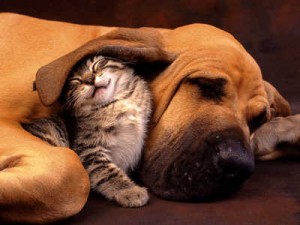Craft Notes
Another kind of innovation?

How many kinds of innovation are there available to a writer? Quite a few, I think. Here’s something from the first pages of Flann O’Brien’s The Third Policeman:
My mother I can recall perfectly. Her face was always red and sore-looking from bending at the fire; she spent her life making tea to pass the time and singing snatched of old songs to pass the meantime. I knew her well but my father and I were strangers and did not converse much; often indeed when I would be studying in the kitchen at night I could hear him through the thin door to the shop talking there from his seat under the oil lamp for hours on end to Mick the sheepdog. Always it was only the drone of his voice that I heard, never separate bits of words. He was a man who understood all dogs thoroughly and treated them like human beings. My mother owned a cat but it was a foreign outdoor animal and was rarely seen and my mother never took any notice of it.
If you know the beginning of The Third Policeman, you know the parents aren’t long for it. O’Brien needs to move them into the story, and toss them back out rather quickly. But he certainly doesn’t seem interested in ignoring them completely. He wants to introduce them, give the reader a fair assessment of their relationship to the narrator and to each other.
But he wants to do it quickly.
And here, to me, is a moment of innovation. The text itself is fairly straightforward—though the “time” and “meantime” is a fine piece of, what, Antistrophe? Does that allow for lyrical modification? Help me out, rhetoricians—the syntax free of fireworks. Where it seems to innovate to me is in the way O’Brien has used a single point of the parental personalities to contrast them: how they view their pets. How they relate to their pets, not each other.
And though it may seem a little cliche to our sensibilities—we with our dog-person, cat-person dichotomies—it seems fresh on O’Brien’s page.
I’m suggesting that the innovation is in that found a remarkably concise way of contrasting two people in two sentences. And he did so without specifying the way the two of them related directly to one another.
Tags: Flann O'B

And he evidently had the same parents I do.
And he evidently had the same parents I do.
I think the great innovation here is to write in a relatively straightforward way in the opening of a book where ontology is about to go all freakin’ haywire. There’s a hypermundane, hypernormal tone to this, everything in its place. Cats are cats, dogs are dogs, characterization follows suit as dutifully as man’s best friend, the animate and inanimate take their places in the Aristotelian hierarchies, and all is well with the world so long as we get our daily bread. Of course, it is only in the opening chapter that any of these holds true. Enter De Selby, exit the mundane!
I think the great innovation here is to write in a relatively straightforward way in the opening of a book where ontology is about to go all freakin’ haywire. There’s a hypermundane, hypernormal tone to this, everything in its place. Cats are cats, dogs are dogs, characterization follows suit as dutifully as man’s best friend, the animate and inanimate take their places in the Aristotelian hierarchies, and all is well with the world so long as we get our daily bread. Of course, it is only in the opening chapter that any of these holds true. Enter De Selby, exit the mundane!